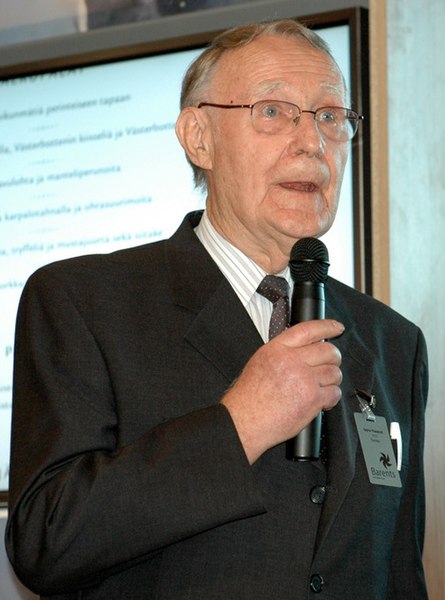IKEA Foundation

Credit: Ministry of Enterprise, Energy and Communications of Sweden/Sandra Baqirjazid
Licence: Attribution 2.0 Generic (CC-BY-2.0)
16 June 2010
| Giver: | Business |
|---|---|
| Receiver: | Registered Organization |
| Gift: | Items, Money |
| Approach: | Philanthropy |
| Issues: | 10. Reduced Inequalities, 13. Climate Action, 4. Quality Education, 5. Gender Equality, 8. Decent Work and Economic Growth |
| Included in: | Private Foundations |
Registered in the Netherlands, the IKEA Foundation is among the largest philanthropic foundations in the world, with assets estimated value at $37 billion. Swedish billionaire and founder of global retail conglomerate IKEA, Ingvar Kamprad, established the foundation in 1982 to initially support innovative architecture and interior design. The foundation is independent of the retail business and funded through the INGKA Foundation, owner of the Ingka Group of companies and the largest IKEA franchisee.
The structure of the IKEA Foundation stands out for its unique funding and governance. In 1982, Kampar transferred the ownership of The Ingka Group to The INGKA Foundation, using business dividends, and securing longevity for Ingka and IKEA companies. The IKEA Foundation is the sole funding recipient of the INGKA Foundation. Because of this funding structure, The IKEA Foundation was consistently highlighted in the philanthropy sector for its lack of transparency.
In 2009, in response to criticism within the philanthropic sector and media that the foundation’s funding was limited and lacking significance, Kamprad amended the foundation’s charter to its current mission: “to improve the lives of vulnerable children by enabling their families to create sustainable livelihoods, and fight and cope with climate change.” With this new mission, the foundation issued its first grant in 2010 to the United Nations International Children’s Fund (UNICEF) for children in the Gansu province of China in the wake of a devastating mudslide.
Today, the IKEA Foundation provides grant funding to nearly 150 partners to help create sustainable, planet-positive livelihoods. The Board of Directors—comprised of two Kamprad family members and three independent directors reviews all proposals and votes on all granting. Primarily, grants support community programs creating opportunities for individuals, emergency humanitarian and refugee relief as well as climate initiatives focused on high-emitting countries. In June 2021, the IKEA Foundation and The Rockefeller Foundation announced a joint $1 billion renewable energy initiative. The project seeks to reduce energy poverty globally by increasing access to renewable energy sources for more than 1 billion people.
Contributor: Maha Tazi
| Source type | Full citation | Link (DOI or URL) |
|---|---|---|
| Publication |
Betts, Alexander; Marden, Andonis; Bradenbrink, Rapheal; Kaufmann, Jonas. Building Refugee Economies: An evaluation of the IKEA Foundation’s programmes in Dollo Ado. University of Oxford, 2020 |
https://www.rsc.ox.ac.uk/publications/building-refugee-economies-an-evaluation-of-the-ikea-foundations-programmes-in-dollo-ado |
| Website |
Fairs, Marcus.. “IKEA refugee shelter to be redesigned following safety fears and design flaws”. Dazeen, 2017 |
https://www.dezeen.com/2017/04/27/ikea-unhcr-refugee-better-shelter-redesign-safety-fears-flaws/ |
| Website |
Mallonee, Laura. “Light in dark times: Ikea kicks off campaign to bring lights to refugees”. The Guardian, 2015 |
https://www.theguardian.com/sustainable-business/2015/feb/18/led-solar-lights-ikea-pepsi-refugees-syria-jordan-pakistan |